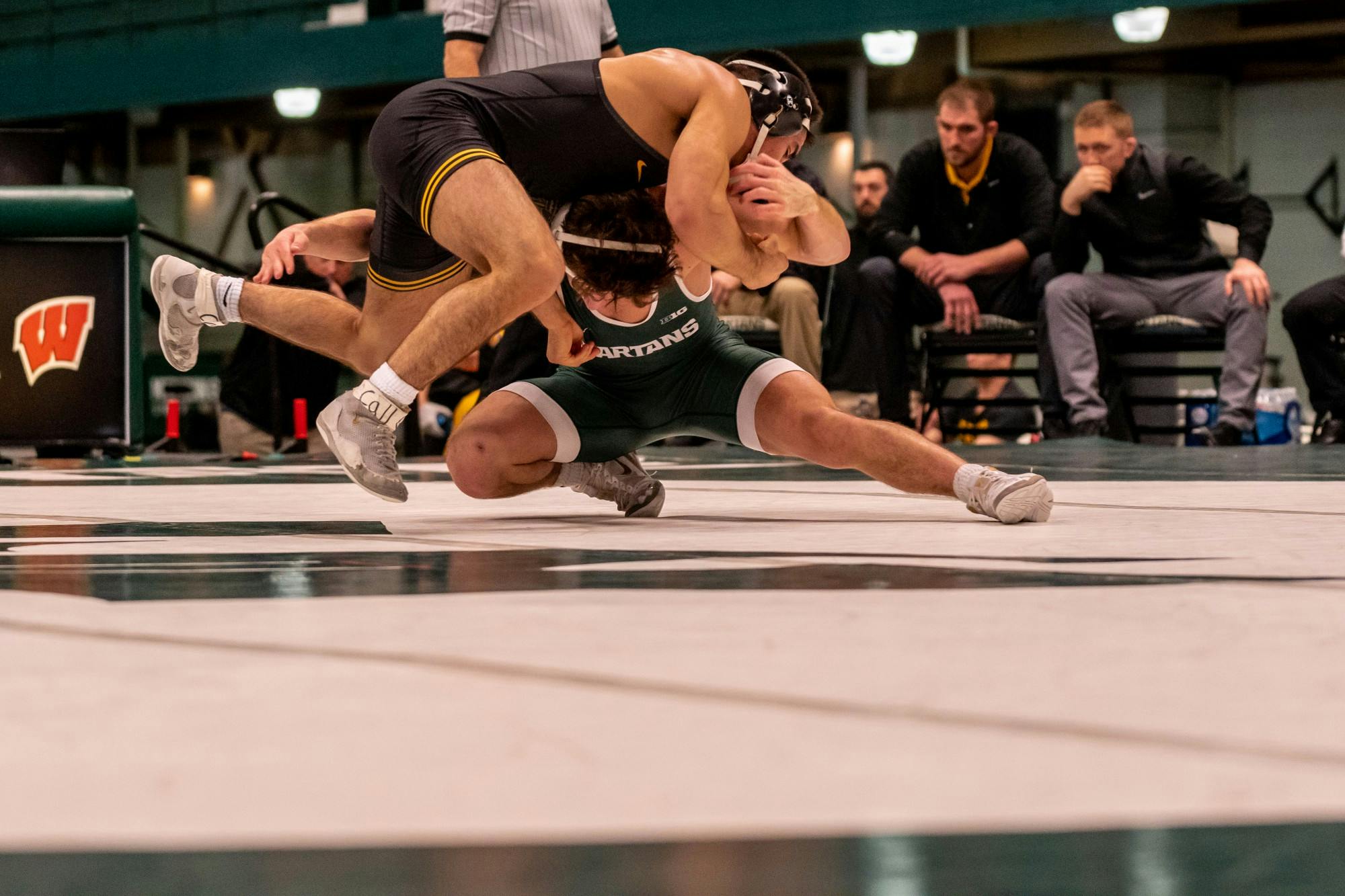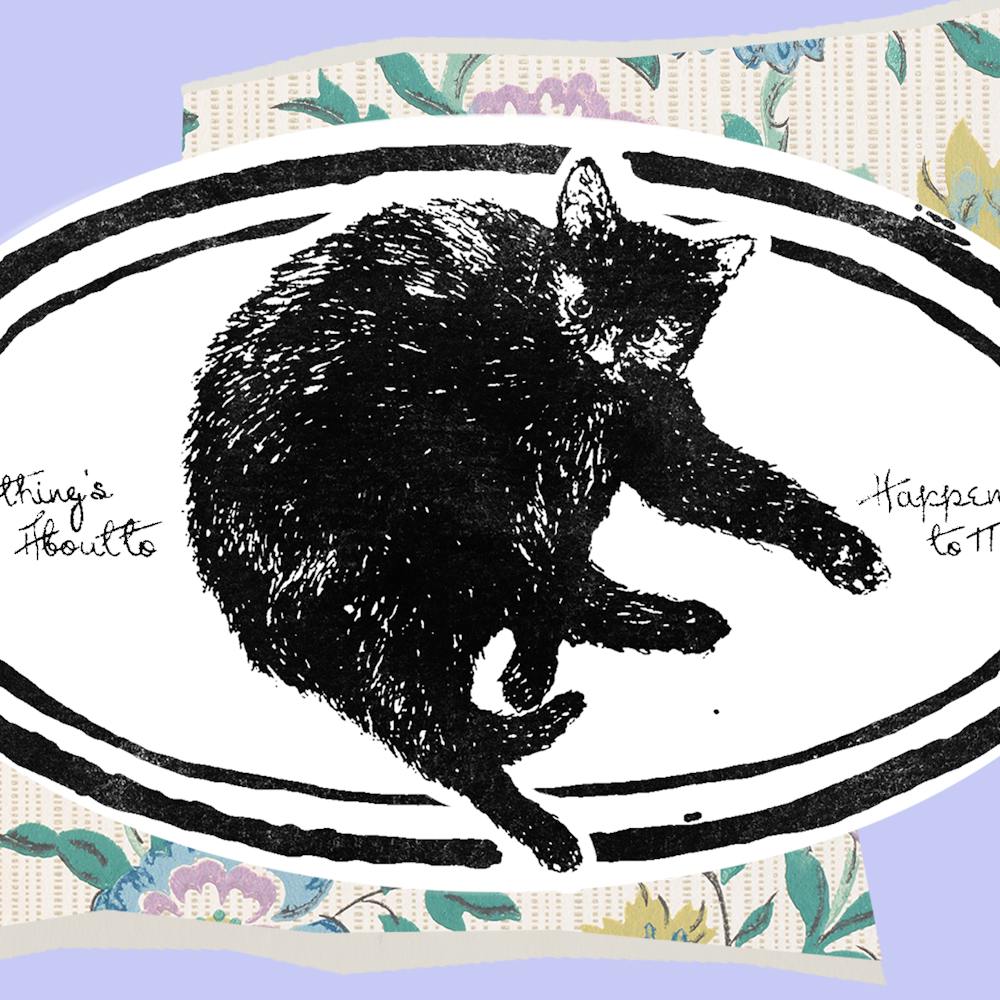In the United States, sports have served as a voice for change. Muhammad Ali, one of the greatest boxers of all time, refused to participate in the Vietnam War in 1966 because of his disagreements with the war. He is now known as one of the most influential people during the Civil Rights movement during the 1960s and 1970s. Tommie Smith and John Carlos in the 1968 Summer Olympics rose their fists high during the U.S. national anthem to protest against racism against the Black community.
Flash forward to today, those same stands against racial inequality continue to happen as players like Colin Kaepernick, Megan Rapinoe, LeBron James, more have found their voice when battling social issues because those same issues of racial inequality still exist.
Michigan State wrestling star Cameron Caffey knows a thing or two about this very issue. Caffey is one of only 34 Black student-athletes — about 7% — who wrestles in the Big Ten according to the NCAA’s demographic database. An overwhelmingly white sport throughout its history, it’s not always easy to speak out about these problems.
“I have views on things but I don’t speak on my views a lot of times because one, I feel like I’m not necessarily very informed on things, and two other people have different views, which is fine,” Caffey said. “Most of these people are conservative, I feel like most of the wrestling crowd is conservative.”
In addition, a recent study done by a Danish firm called RunRepeat concluded TV commentators praise players with lighter skin on their intelligence and work ethic more often then they do players with darker skin. The study analyzed more than 2,000 statements, 62% of praise given out was said about players who had a lighter skin tone, and about two-thirds of commentators' criticism was given to athletes with darker skin tones. That same ideology often translates to other sports like wrestling.
“If you're describing two athletes and you take a white wrestler, it’s like ‘oh, this guy is a hard worker, he has determination, his technique is really good,’” Caffey said. “Then you can take a black athlete say, ‘Oh yeah, he’s strong, he’s fast, he’s powerful, he’s explosive.’ It’s little stuff like that."
These occurrences weren’t just something he found in college either, but it’s something he has had to face ever since he was a kid.
“If I lost I would be crying and I just remember my dad pulling me to the side and talking to me and saying ‘hey, you can’t do that because people like to see you show weakness’,” Caffey said. “There’s things I have to be cognizant of because I am a Black athlete in a predominantly white sport.”
With a lack of diversity in non-revenue sports such as wrestling along with racism that exists in the world, including sports world, how does this all get fixed?
According to Michigan State wrestling coach Roger Chandler, it begins internally.
“I think the discussions that we have had even in the athletic department over the last month or so have been very good and very eye-opening,” Chandler said. “I think anytime you can have these discussions, it allows us to have a better understanding of each other — and that’s just life. We need to communicate and talk.”
Sometimes those problems internally however, get covered up or hidden, and the issues need to go public to make real change. For example, Oklahoma State running back Chuba Hubbard called out his head coach Mike Gundy in June for wearing a One America News t-shirt, a news organization that called the Black Lives Matter movement a farce. As a result of his demands for change, the program passed a variety of changes to improve the culture in the program. Many other schools have had similar interactions, like Iowa and Kansas State. For Chandler, these discussions are seen as a step in the right direction.
“I think it’s great,” Chandler said. “That’s what builds your culture, that’s what defines who you guys are as a program. As long as everybody is on board or has an understanding, I think it’s a great thing to build a tighter knit group of individuals as a cohesive unit.”
However, those discussions can only help your team become more inclusive, not the entire sport or other sports altogether. Wrestling is not the only non-revenue college sport that has a lack of racial diversity in its collection of student-athletes. For men’s sports in 2019, baseball is over three-fourths white, men’s swimming is at 70.6%, men’s golf is at 69.7% and men’s cross country is at 68.4%. That same racial diversity problem is in women’s sports too as field hockey and swimming hang around 75% white, cross country at 70.5%, and at 68.7% for softball.
Dr. Yannick Kluch, assistant professor for sports communication at Rowan University said that economic standing and representation are two of the biggest barriers for maintaining equity in a sport like wrestling.
"Sports like golf, gymnastics, hockey usually require a large financial commitment and upper socioeconomic standing, as they are quite expensive to participate in," Dr. Yannick Kluch said via email. "That’s why they are often offered in white affluent neighborhoods and attract white children who can afford to participate in those games. Another aspect is an issue of representation. In diversity and inclusion work, we often like to say that 'you can’t be what you can’t see.' If there are no high-profile Black athletes or coaches in a sport like cross country, it is hard for young Black children to imagine themselves doing that sport."
Fixing that however isn't as simple as identifying it, but rather implementing solutions to attack the issue.
Support student media!
Please consider donating to The State News and help fund the future of journalism.
"Sports like wrestling, baseball, swimming, etc. need to strategically implement efforts to increase diversity in the sport – whether that is through access, visibility of minoritized athletes, or other means," Dr. Yannick Kluch said via email. "Another aspect is to train coaches and administrators in the sport on concepts like implicit bias and microaggressions, both of which can create environments that are not inviting for and inclusive of athletes of color."
Big Ten commissioner Kevin Warren said he organization is starting to move the needle for change with the Big Ten’s new Anti-Hate and Anti-Racism Coalition and voter registration initiative.
“We have the distinct opportunity and responsibility through our Coalition to continually encourage, educate, and empower our student-athletes as we embrace transparent and much-needed dialogue regarding meaningful issues that have impacted race relations for many years,” Warren said in a Big Ten press release.
In the United States, 18-29 year-olds are the demographic least likely to vote each year when in the last presidential election in 2016, only 46.1% of that age group turned out to vote according to the US Census. Warren is aiming to change that by encouraging student-athletes to vote in 2020.
“An election year provides the opportunity to educate our student-athletes in a non-partisan fashion regarding the importance of exercising their civic right to clearly understand the political process, register to vote, cast a vote during the upcoming election, and provide adequate support to combat voter suppression.” Warren said in a Big Ten press release. “We are at an inflection point in our country. Empowering our student-athletes by encouraging them to use their voices illustrates how we can collectively work together to build a better future.”
Editor’s Note: This article is part of our Summer Mail Home issue. View the full digital issue here.
Discussion
Share and discuss “The battle to diversify wrestling, non-revenue college sports” on social media.








